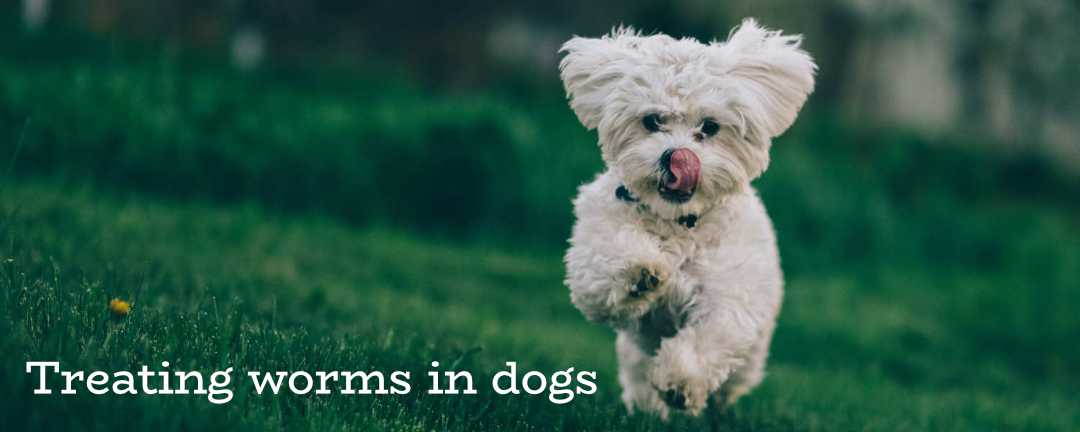Worms in Dogs

Worms of various sorts are an almost inevitable aspect of caring for your dog and it's more than likely that your dog will suffer from them at some point in their life.
What types of worms are there?
Tapeworm
Probably the most common type of worm found in dogs. They are spread by fleas and can grow up to 70cm in length. You can tell if your dog has tapeworm as small sections of the worm break off and are excreted in the dog's faeces and look like small grains of rice that wriggle around. Fortunately, they don't pose a serious health risk but do give dogs an itchy bottom. They can also infect humans where, in the long term, can cause fluid cysts in various organs.
Roundworm
Toxocara Canis is the most common species of roundworm and can infect pups while still inside the womb. Their appearance is like strands of spaghetti and they can grow up to around 18cm long. Side effects of their presence include vomiting and diarrhoea and in rare cases, sufficient numbers can cause blockages in the intestines. One of the biggest health issues are the eggs that are deposited in the dog's faeces. The larvae can cause both eye and liver damage, which is one of the main reasons many parks and recreational areas have banned dogs.
Lungworm
Lungworm infestations in dogs have seen an increase in recent years. The parasite infects slugs and snails which, if eaten by your dog, will enable the parasite to deposit eggs in the heart which then lodge in the bloodstream and lungs. Infected dogs can pass on the parasite to their puppies and other dogs.
Hookworm
These little parasites live in the dog's small intestine where they consume blood. Puppies can be especially prone to serious illness from them and even death. Symptoms can include very dark, almost black, stools and very pale gums. A large infestation can cause anaemia.
Whipworm
A particularly hard form of parasite which can live in the soil for many years. They are known to cause inflammation of the intestinal tract and symptoms will include diarrhoea and mucous covered stools.
General symptoms of worms in dogs
The symptoms to look out for:
- Breathing issues
- A cough
- Tiredness
- Weight loss and lack of appetite
- Sickness and diarrhoea
- Lethargic behaviour
- Poor coat condition
- Constantly hungry
- Worms in faeces
Treatment of worms in dogs
Tapeworm and roundworm can be treated by over the counter medication from your vet. Please follow the instructions carefully and complete the course. Most dogs will need routine treatment to avoid infestation.
Heartworm is more challenging and will need more specialised care from your vet to avoid complications.
Lungworm requires a test to identify that the parasite is present. A stool sample will need to be sent off for testing. Talk to your vet if you suspect they may have lungworm.
Prevention of worms in dogs
Regular worming will also help prevent infestations. Be wary, if you live in a known hot spot for a particular worm, when exercising your dog
Photo by Gabriel-Crismariu
